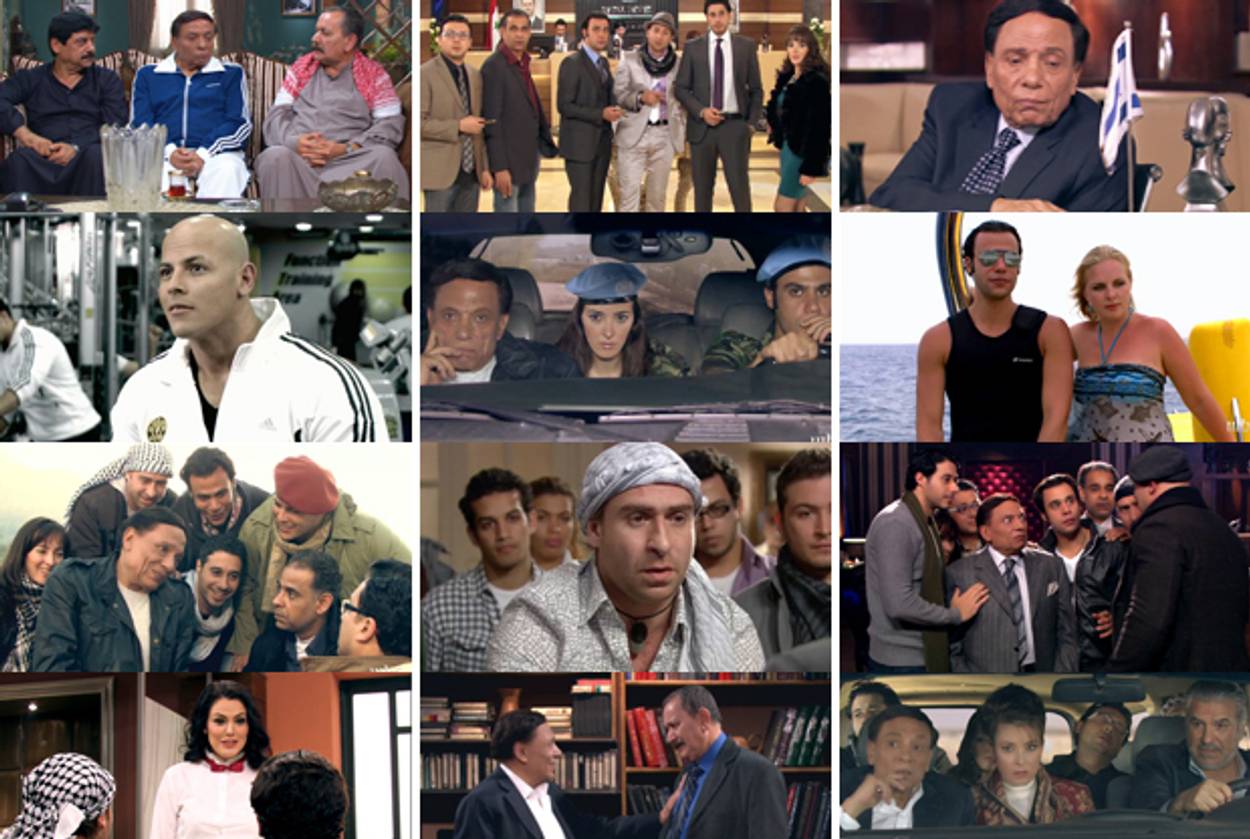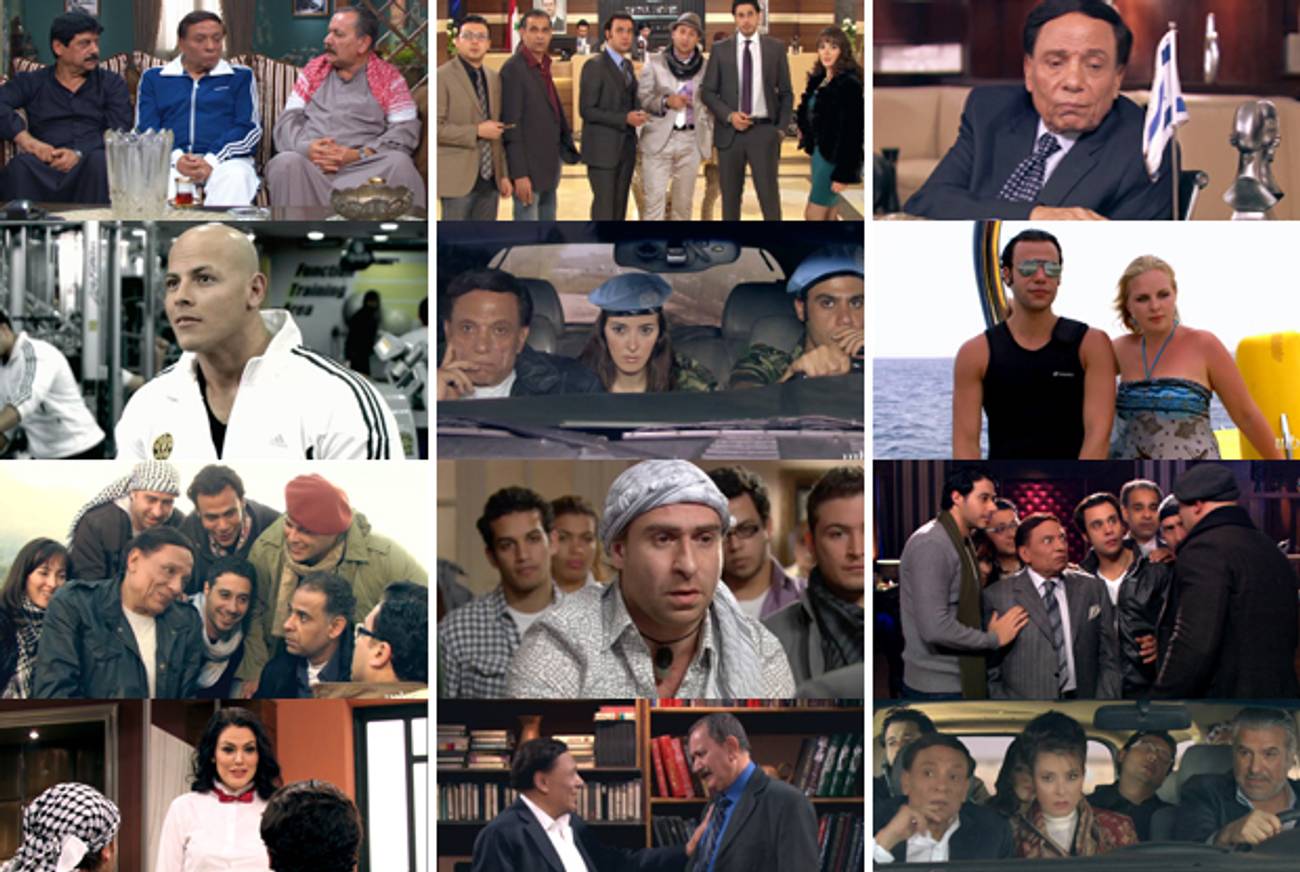Egyptian TV’s Mixed Message
A series airing during Ramadan traffics in anti-Semitic themes but may show an evolving attitude toward Israel




During the Muslim holy month of Ramadan, now winding down, the Arab world’s TV networks air a slew of dramas and comedies, typically serialized in nightly episodes and culminating at the end of the month. Many depict Israel and Jews using well-known anti-Semitic canards. A memorable example from the 2001 Ramadan season, Horseman Without a Horse, told the story of Israel’s establishment on the premise that the Protocols of the Elders of Zion were real—not an anti-Semitic forgery by the Russian secret police.
Among this year’s crop of miniseries, several are in keeping with this insidious tradition. The Anti-Defamation League provided four examples earlier this month in a news release that Commentary writer Jonathan S. Tobin used as the basis for this post. One of the programs has been airing on Hezbollah’s Al-Manar network; another on the Salafi Al-Rahma channel; and a third on Egypt’s comparatively secular Al-Nahar. The fourth—Firqat Naji Atallah (“Naji Atallah’s Team”), a comedy starring legendary Egyptian comic Adel Imam—aired on the pan-regional juggernaut MBC, with an audience that probably dwarfed the other three networks combined. As the ADL notes, “The show revolves around the character of Naji Atallah, a diplomat working in the Egyptian embassy in Tel Aviv who decides to take revenge on Israel by robbing an Israeli bank.” The show routinely mocks “Israelis and Jews for their ‘frugalness’ and includes expressions of support for terrorism against Israel.”
Between living in the Middle East and keeping a satellite dish at home in the United States, I have followed Ramadan programs over the past 10 years and, on a recent visit to Cairo, had the chance to casually view much of the MBC series. While the ADL’s criticism is accurate, it omits other elements, also prominent, that reflect a modest degree of evolution in some Arab screenwriters’ attitude toward Israel and Jews.
I don’t know the production team behind Firqat Naji Atallah personally, but I’ve spent time with other Arab teleplay writers who also work for MBC. They tend to regard themselves as “liberal.” They are at odds with Islamists on cultural grounds, much the way liberal American writers tend to dislike Christian conservatives. They dislike Israel—but in this season of upheaval and Islamist ascendance, they are also opposed to the bellicose direction in which their region seems to be headed. They see themselves as having the potential to play a role in challenging the more strident, entrenched ideologies of the Arab world—and where they find the chance to do so even faintly, they seize it. Their work, accordingly, contains deliberate ambiguities and multilayered messages easily missed in translation and out of context. The view that such messages may be found in Firqat Naji Atallah has been expressed by Egyptian drama critic Magdi al-Tayyib, who recently argued, quite contrary to the ADL’s statement, that the program contains an “indirect call for normalization of relations with Israel.”
***
Judging from the production values, Firqat Naji Atallah appears to have been one of the highest-budget productions of the season. As promotional ads pointed out, it also marks Adel Imam’s return to the “little screen” after years of starring only in films. The story opens with an imagined controversy inside Egypt: Young demonstrators have vandalized public property in Cairo, angry that their embassy in Israel plans to invite Jews to celebrate the anniversary of the Egyptian revolution. They are joined in spirit by the ambassador, named “Gamal Abdel Nasser,” who resigns his post in disgust. Protagonist Naji Atallah (Imam) is a lower-level diplomat who assumes the ambassadorship in a pinch and proceeds with the controversial plan to hold the event in Israel.
During a mock televised debate, Atallah defends his decision: We’re at peace with Israel, he notes. Jews are people too, and many of them respect their Egyptian neighbors. We have always been and always should be friendly toward others. Asked by the TV host whether Atallah would take this logic as far as to join Jews in celebrating their “ ‘Day of Independence,’ which we regard as a ‘catastrophe,’ ” Atallah says he would. That holiday commemorates youngsters who died fighting a war with us, he explains; we should acknowledge and remember the tragedies that befell both our peoples.
Of course, viewers of Firqat Naji Atallah are laughing at this speech—because as they already know from the teaser trailer, Atallah’s public face is a ruse to help him rob a nearby bank. Nonetheless, Atallah’s feigned passion for peace was an extraordinary TV spectacle. A viewer flipping channels could easily have gotten the wrong impression about the discussion’s meaning, much the way listeners to Orson Welles’ 1939 radio production of War of the Worlds were deceived into thinking Martians had invaded Earth.
Unambiguous, meanwhile, is the depiction of the Egyptian youth protesters, briefly jailed by the government. One of them is a laughingstock: Asked by the authorities to explain why he participated in the demonstration, he is at a loss. His response is loud, obnoxious, and comically incoherent, betraying that he joined the rally out of sheer excitement. A different demonstrator, handsome and articulate, lucidly explains his motivation: He feels it’s wrong to promote “normalization” with the Jewish state while there is an Israeli blockade around Gaza and vehemently opposes Egypt’s participation in the blockade. While no context is provided concerning present Israeli-Egyptian policies toward Gaza, the young man’s argument is rational, and a far cry from traditional calls to destroy Israel “from the river to the sea,” heard so often in Arabic media. Released from jail, the protester has a long conversation with his brother, a computer scientist, who tells him that violence is “not the way.” I hate the Zionists as much as you do, he says—but Egypt doesn’t need vandals; it needs doctors and lawyers. Invest your energy in building up your country, he urges.
To be sure, both the incoherent vandal and the computer scientist go on to play an instrumental role in Atallah’s bank heist. But in the same episode, there is also a discussion in a mosque in which a group of Salafis approach the prayer leader, a former terrorist, and ask him to help them make a bomb. He declines, asserting that he can no longer countenance a violent attack in which innocent women, children, and old men might die. Dramatic, string-heavy incidental music backs up his throaty delivery, signaling to the viewer that he is a non-ironic character who means what he is saying.
The ADL and Commentary are right to note that the program’s depiction of Israel is teeming with stock anti-Semitic caricatures: old men with hook noses, a procession of rabbis and soldiers who want only the worst for gentiles and particularly their Arab neighbors. But there are other characters, too. Witness the heated conversation between an Israeli diplomat and an Israeli security official about Naji Atallah’s public statements in favor of peace. The diplomat is one of Atallah’s biggest fans: Atallah is precisely the sort of Egyptian who should be embraced and encouraged, he says. The security officer counters that all Egyptians want to destroy Israel, pure and simple, and if they say otherwise in public, it’s a sign that they are secretly plotting something. The dramatic irony is titillating: You sympathize with the diplomat, but you realize he is naïve; you want to hate the security officer, but you know that his assessment of Atallah is correct.
A recurring conceit of the program is that Israelis know and love Egyptian culture. An effeminate old man whom Atallah pretends to befriend speaks colloquial Egyptian Arabic and rattles off love songs by seminal Egyptian composer and crooner Muhammad Abdel Wahhab. Several scenes occur in an Israeli bar where images of Cleopatra and the pyramids adorn the wall. When Atallah gives his welcome speech at the Egyptian embassy, he tells the crowd, “I can speak Hebrew just fine, but since you all know how to talk ‘Egyptian,’ I’ll address you in my native tongue.”
Say what you will, these details do not contribute to the cause of inciting people against Israel. On one level, they may simply reinforce Egyptians’ high opinion of themselves: Of course Israelis love us. Everybody loves us. We are the “Mother of the World,” as they say in Cairo. But these repeated depictions of Israeli esteem for Egypt have the additional effect of taking the edge off the ugliness that is also on display.
***
Like this article? Sign up for our Daily Digest to get Tablet Magazine’s new content in your inbox each morning.
Joseph Braude is an author, broadcaster, and Middle East specialist. He is working on a book about Arabic media.
Joseph Braude is an author, broadcaster, and Middle East specialist. He is working on a book about Arabic media.